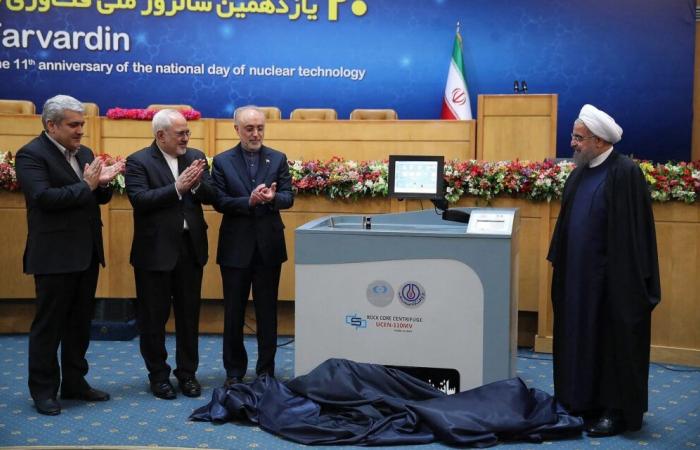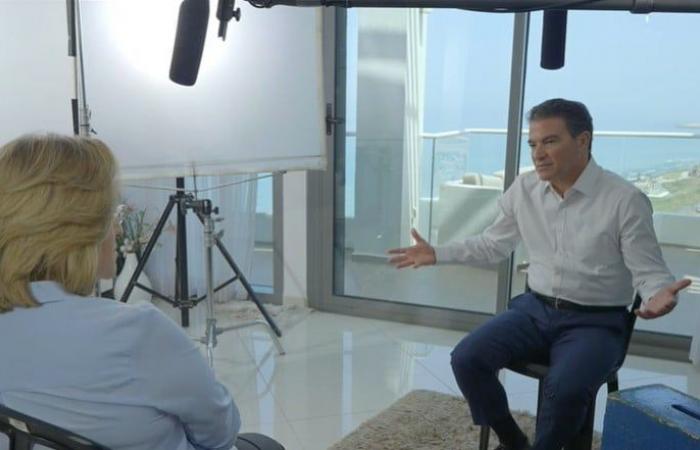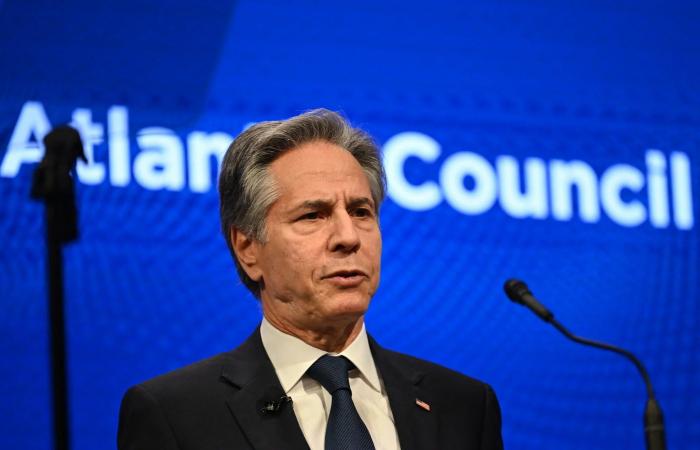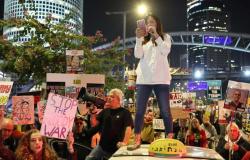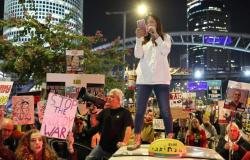Mohammad Javad Zarif, who was foreign minister when Iran and major world powers concluded the 2015 nuclear deal and is now vice president for strategic affairs, said in a recent interview that Israel had already placed explosives in Iranian centrifuges, according to a translation of his remarks that was offered Tuesday by Iran International.
“Our colleagues had purchased centrifuges for the Atomic Energy Organization and we discovered that explosives had been placed inside them – explosives that they were able to detect,” Zarif said on the program Hozour, according to the opposition media.
Zarif also denounced the sanctions that have been imposed on Iran and which, he said, force the authorities of the Islamic Republic to turn to middlemen, which opens loopholes in the supply chain including Israel is likely to take advantage.
To not miss any of the news,
receive the Daily Headline on your email
By registering, you agree to the terms of use
“Instead of being able to order equipment directly from manufacturers, sanctions force you to use multiple intermediaries to make purchases,” he explained. “If the Zionist regime infiltrates even one of these intermediaries, it can do anything, it can integrate anything it wants into the orders and that is exactly what happened.”
“The pager problem in Lebanon turned out to be something that had been prepared for several years, something that was carefully orchestrated by the Zionists,” he noted, referring to the explosions in last September who targeted Hezbollah terrorists, a group supported by Iran.
Zarif did not specify, in this interview, when the incident which allegedly affected the centrifuges took place, nor where it occurred. In 2021, former Mossad chief Yossi Cohen suggested that Israel had blown up an underground Iranian centrifuge facility at Natanz, an explosion believed to have been caused by bombs placed in the equipment that was on site.
“It doesn’t look like it used to,” Cohen said in an interview at the time, referring to the underground “cellar” of Natanz, where “the centrifuges were spinning.”
This image, taken on April 17, 2021 and taken from a video broadcast by Iran Broadcasting, IRIB, a state television channel, shows several centrifuges lining the damaged room on April 11, 2021, at the Iran enrichment plant. uranium from Natanz, 322 km south of the capital, Tehran. (Credit: IRIB via AP)
Investigative journalist Ilana Dayan, who interviewed Cohen for the program “Uvda” on the N12 news channel, noted that foreign media had attributed two major explosions to Natanz and Mossad over the past twelve years. previous months. These media outlets claimed that a “huge quantity of explosives” had been embedded in a marble platform used to balance the centrifuges.
“The man behind these explosions made sure to provide the Iranians with the marble foundation on which the centrifuges were placed,” Dayan said. “When they set up this foundation in Natanz, they had no idea that it already contained a huge quantity of explosives. »
Former Mossad chief Yossi Cohen in interview with Ilana Dayan, broadcast June 10, 2021. (Screenshot)
Will Tehran “just rebuild” its nuclear program in the event of an attack?
When asked, during an interview with MSNBC on Monday, why Israel should not tackle Iran’s nuclear program once and for all, US Secretary of State Antony Blinken, for his part, hand, openly hinted that he was opposed to an Israeli strike that would target Iranian nuclear facilities.
“We have to see what would be sustainable and what would guarantee that the program does not resume. So one of the things to evaluate is: If this were to happen, would Tehran be content to rebuild what has been destroyed even deeper below the surface of the earth, in a place that would be even more difficult to access ? » replied the outgoing Secretary of State.
Blinken reiterated that he had recently acknowledged that Iran had accumulated enough fissile material to make a nuclear weapon and that the country could, in about a week, process it to bomb quality. However, the actual development of a weapon would take much longer, he stressed.
“Iran is going to have to face its own decisions about how the country wants to move forward, but I think the incoming U.S. administration may have an opportunity very precisely because Iran is in difficulty – with terrible economic suffering,” he said. “The people contest a large part of the regime’s actions, and in particular its tendency to interfere in the affairs of other countries in the region.”
“This is a moment of opportunity, and perhaps it is an opportunity to sustainably resolve the nuclear challenge posed by Iran – but perhaps it is also an opportunity to end to the actions taken by Iran throughout the region,” he added.
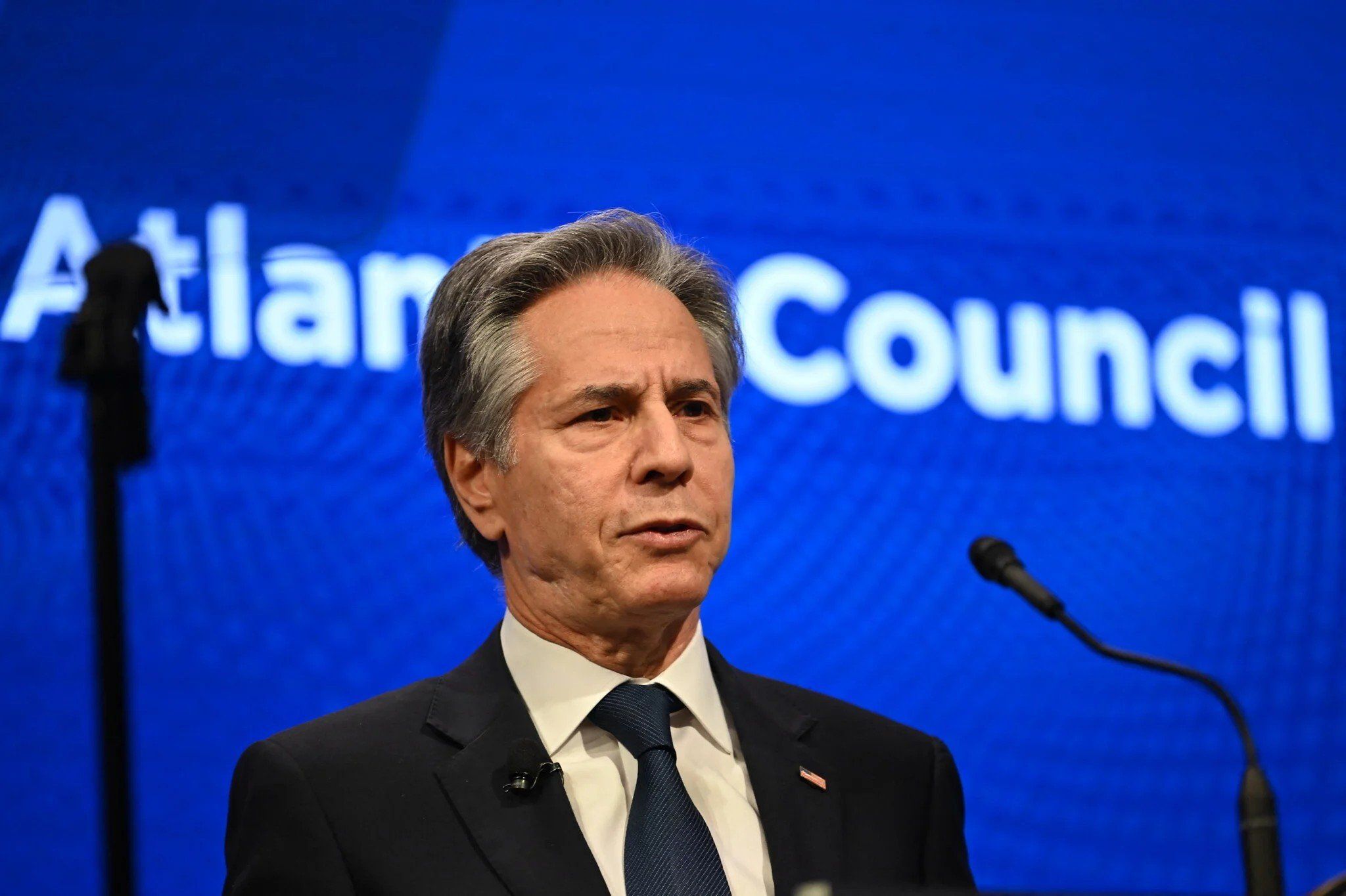
US Secretary of State Antony Blinken speaks at the Atlantic Council in Washington, January 14, 2025. (Credit: ANDREW CABALLERO-REYNOLDS / AFP)
Blinken’s remarks came as White House National Security Adviser Jake Sullivan reiterated Tuesday that Iran was in a state of weakness not seen since the 1979 revolution and that this weakness was worrying in that it could push the country to reexamine its nuclear weapons posture – a concern that is shared by outgoing President Joe Biden.
Reuters contributed to this article.

